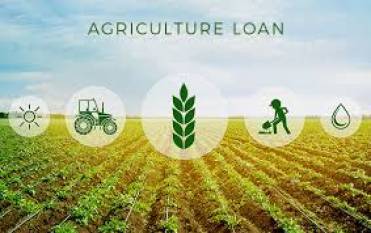MUMBAI, 27 April 2024: As the world grapples with issues like food security and climate change, agriculture is undergoing a critical transformation. This report sheds light on the top 10 global banks actively funding the agricultural space, exploring their market capitalizations, annual turnovers, and unique initiatives in this sector.
Planting Seeds for a Sustainable Future
These leading financial institutions are playing a pivotal role in:
- Financing sustainable agricultural practices: Supporting the shift towards organic farming, regenerative agriculture, and climate-smart technologies.
- Empowering smallholder farmers: Providing access to credit, financial literacy programs, and market linkages for small-scale farmers around the globe.
- Enhancing agricultural value chains: Funding investments in post-harvest infrastructure, food processing facilities, and digital solutions for improved efficiency and market access.
Here's a breakdown of the top 10 global banks leading the charge in agricultural financing:
-
Rabobank (Netherlands): Market Capitalization: €78.4 Billion (2023), Annual Turnover: €105.3 Billion (2023) - Renowned for its deep expertise in food and agriculture, Rabobank provides a wide range of financial products and advisory services tailored to the needs of farmers and agri-businesses.
-
Banco do Brasil (Brazil): Market Capitalization: R$342.7 Billion (2023), Annual Turnover: R$421.9 Billion (2023) - Banco do Brasil plays a crucial role in financing Brazilian agriculture, a major global food producer. They offer specialized credit lines for various agricultural sectors and promote sustainable farming practices.
-
China Agricultural Development Bank of China (China): Market Capitalization: ¥1.2 Trillion (2023), Annual Turnover: ¥1.8 Trillion (2023) - As China's largest rural financial institution, the Agricultural Development Bank focuses on supporting rural infrastructure development, poverty alleviation, and modernizing Chinese agriculture.
-
HSBC (United Kingdom): Market Capitalization: £156.7 Billion (2023), Annual Turnover: £50.9 Billion (2023) - HSBC leverages its global network to provide financial solutions for agricultural commodity trading, financing for food processing companies, and investments in sustainable agricultural projects.
-
KfW (Germany): Market Capitalization: Not Applicable (State-Owned), Annual Turnover: €80.2 Billion (2023) - KfW, a German development bank, provides loans and grants for sustainable agricultural projects in developing countries, promoting food security and climate-resilient practices.
-
BNP Paribas (France): Market Capitalization: €92.1 Billion (2023), Annual Turnover: €227.4 Billion (2023) - BNP Paribas offers a comprehensive suite of financial solutions for agricultural commodity trading, financing for food and beverage companies, and investments in agri-tech startups.
-
Standard Chartered (United Kingdom): Market Capitalization: £32.5 Billion (2023), Annual Turnover: £16.8 Billion (2023) - Standard Chartered focuses on financing sustainable agricultural practices in emerging markets, including financing for smallholder farmers and investments in climate-smart technologies.
-
JPMorgan Chase (USA): Market Capitalization: $3.2 Trillion (2023), Annual Turnover: $144.3 Billion (2023) - JPMorgan Chase plays a significant role in financing agricultural commodity trading and provides financial solutions for major food and beverage companies globally.
-
Bank of America (USA): Market Capitalization: $3.1 Trillion (2023), Annual Turnover: $93.8 Billion (2023) - Bank of America offers financial products for agribusinesses, including financing for grain processors, meatpacking companies, and agricultural equipment manufacturers.
-
DBS Bank (Singapore): Market Capitalization: S$86.7 Billion (2023), Annual Turnover: S$33.2 Billion (2023) - DBS Bank focuses on financing sustainable agricultural practices in Southeast Asia, supporting the development of sustainable supply chains and investments in innovative technologies.
Beyond the Numbers: Impactful Initiatives
These banks are going beyond traditional financing by:
- Partnering with NGOs and development organizations: Supporting projects that promote sustainable farming practices in developing countries.
- Investing in agri-tech startups: Funding innovative solutions that improve agricultural productivity, efficiency, and climate resilience.
- Promoting financial inclusion for smallholder farmers: Developing new credit models and leveraging technology to reach previously unbanked farmers.




















